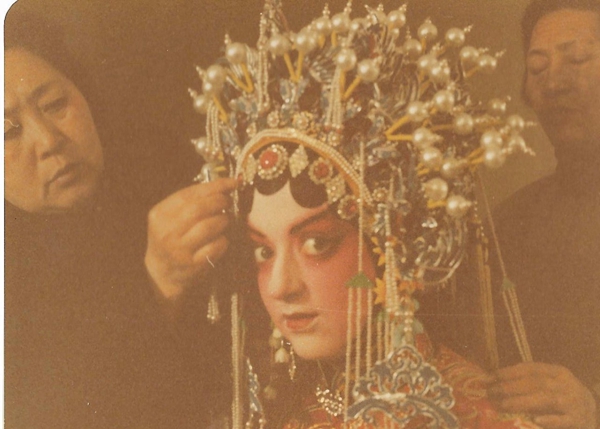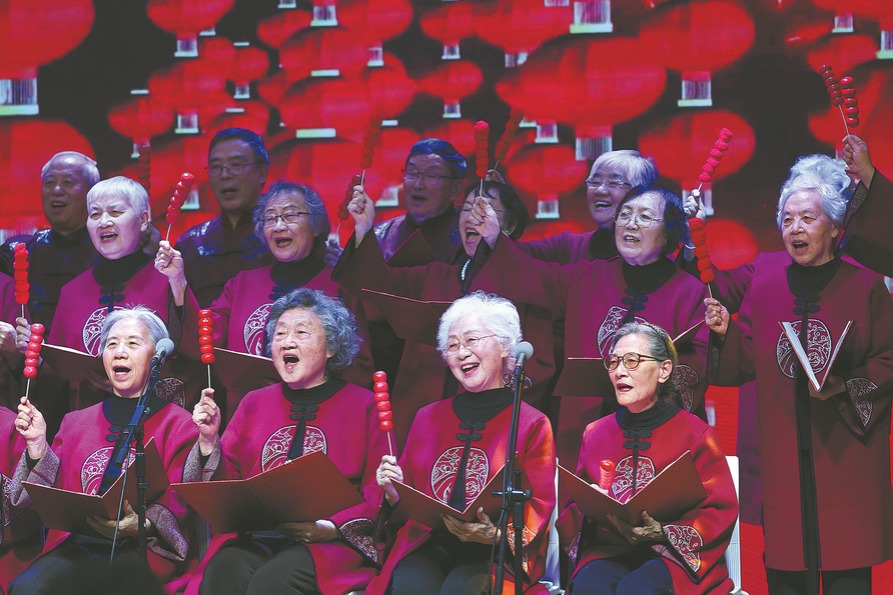Getting to know you


However, Wichmann was not the only one grappling with the language. Lynda Bell, one of the Beijing Eight who also studied at Nanjing University, struggled as she tried to understand her interviewees, peasant women in Nanjing and its surrounding areas, including Wuxi.
"People were very hospitable; they literally grabbed me and took me into their houses," says Bell, who was always ready to jump off her bike and talk.
"But the many variations of Mandarin spoken by the locals meant that while they could understand me, I couldn't understand them.
"Among people studying modern China at the time, there was great interest in how peasants had experienced life prior to the Communist revolution, and how that life had conditioned them to participate in the revolutionary process. That interest also lay at the root of my research."
To fulfill that interest "had not always been easy for our Chinese host", Bullock says. Apart from the technical issues-Bell did have a Chinese assistant on most trips to do oral translation for her between Mandarin and the local dialect-the idea of having foreigners doing field research and enjoying relatively free access would have been unthinkable a mere year earlier.
Elsewhere, Hawke, Allee's road pal and Stanford University graduate, had ventured far beyond the campus of Peking University, in an effort to feed his own interest, and himself.
"The late 1970s and early 80s was a time of intellectual flourishing, evidenced by the great number of literary and academic journals that were newly available at the time," says Hawke, who every week would take a bus from the university to a big post office in central Beijing to browse through the new publications before buying 10 to 15 of them, mostly on political economy, business and management.
"Before heading back with my big bundle, I would go to the nearby Hong Bin Lou Restaurant and eat boiled sliced lamb from a partitioned 10-person communal hot pot. That means there could be 10 strangers at the table, all eating from their own partitions."
So at a time when Bell, who also spent some time in Beijing before going to Nanjing, was surviving on "porridge and pickles" in a student canteen, Hawke was trying to see through the mutton-scented haze and start up a conversation with his fellow diners.
"Usually, the restaurant workers would ask me for ration coupons, once required for everything one needed to buy, from a bicycle to a bottle of cooking oil. I reacted as if I didn't know what they were talking about and in the end they always said never mind and accepted my money. Of the coupons I saved, I gave them all to my Chinese friends."
And friends he certainly had made among the university's Chinese students, whom Hawke described as "the cream of the crop".Some of them told their stories to Hawke so many times, "to the point that I could almost tell their stories for them".
There was a yearning to share and a reluctance to let those memories go, if only because they had been the source of so much personal travail. Yet the memories, like the coupons, were fast becoming history. In the summer of 1980, by which time Hawke had already finished his study and had taught economics to undergraduate students at Peking University for a semester, change was in the air.
"Reading newspapers and talking with business people, I realized that they were getting to all the cool meetings where they met with decision-makers such as the mayor and vice-mayors of Beijing," Hawke says.
"I wanted to be one of them."
These days Hawke has on his office desk in Beijing a framed 1984 photo showing him interpreting for the Chairman of American Motors, who met Chen Muhua, the then Chinese Minister of Foreign Trade and Economic Cooperation.
The occasion was the signing of a joint-venture contract between American Motors and Beijing Auto Works, a first for the Chinese automotive industry. Hawke, as part of a young company facilitating the entry of US businesses into the emerging Chinese market, had been working for this moment for five years.
"We had the most exciting time between 1980 and 1987," Hawke says. "China hadn't developed its own laws on foreign capital and joint ventures. Everything we did, we did it from scratch."
After many years' involvement with foreign businesses in China, Hawke became the China director for the Stanford Graduate School of Business, a position he held until recently. With his office in the Stanford Center at Peking University, the job allowed him to continue a common legacy of the two universities, of which he was a considerable beneficiary.
And it may not be a pure coincidence that his life's trajectory somehow reflects that of Ross, who, after working for the US-China Business Council in the 1980s and early 90s, returned to the field of education, responsible now for joint programs run by Johns Hopkins School of Advanced International Studies and its partners in China, including Nanjing University and Tsinghua University.
"Many young people, including several of my neighbors, are eager to study in China,"Ross says.
In 1986 David Lampton, a political scientist who first studied China at Stanford in the mid-60s, directed a study titled A Relationship Restored-Trends in US-China Educational Exchanges, 1978-1984, which The Wall Street Journal has described as "the first comprehensive analysis" of its kind.
According to the study, in 1979, 62 students and scholars were sent to China by the CSCPRC, and another 36, including Hawke and Ross, went as a result of intercollegiate programs between a US university and a Chinese university. While the CSCPRC figure remained about the same (54) for 1980, in that year the intercollegiate figure was nearly five times what it had been the year before (179) and stayed high in ensuing years.
"When Deng Xiaoping spoke to Frank Press in 1978, the CSCPRC was organized and had money from both the public and private sectors, while the US universities were not fully aware of what was happening," Lampton says.
"That was why the CSCPRC was one step ahead of them. But once normalization happened, the private sector rapidly cut in, overtaking those with governmental background. Now the CSCPRC basically doesn't exist and the whole relationship is essentially private.
"And these universities are currently fighting a lot of what's happening in Washington."
In July the US Government rescinded a policy that would have required international students to take at least some in-person coursework to remain in the US, in response to a lawsuit by Harvard and MIT.




































